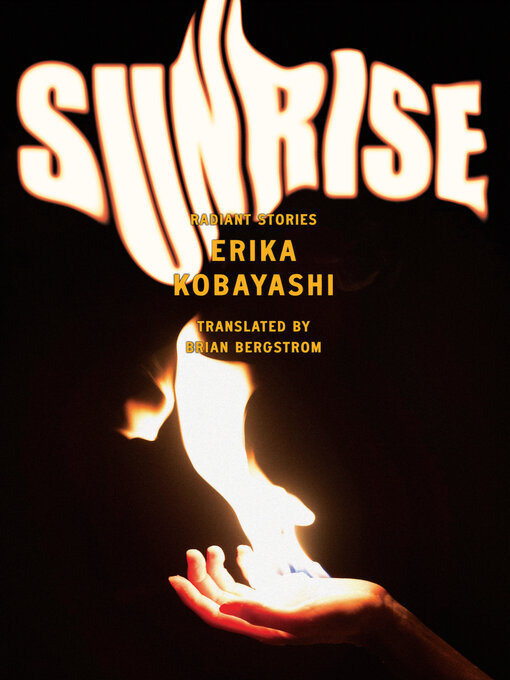- Featured Magazines
- Let's Get Cooking!
- News, Politics, and Business
- Lifestyle Magazines
- Popular Magazines
- All Magazines
- See all magazines collections
"A remarkable collection." —Kirkus Reviews
A collection of contemplative, lyrical stories examining the visible and invisible consequences of atomic power on Japanese society
Sunrise is a collection of interconnected stories continuing Erika Kobayashi’s examination of the effects of nuclear power on generations of women. Connecting changes to everyday life to the development of the atomic bomb, Sunrise shows us how the discovery of radioactive power has shaped our history and continues to shape our future.
In the opening, eponymous story “Sunrise,” Yoko, born exactly two years and one day after Nagasaki was decimated, mirrors her life to the development of nuclear power in Japan. In “Precious Stones,” four daughters take their elderly mother to the restorative waters of a radium spring, exchanging tales of immortality. In “Hello My Baby, Hello My Honey,” a woman goes into labor during the final days of WWII. And finally, “The Forest of Wild Birds” shows Erika visiting the site of the Fukushima Dai-ichi Nuclear Power Plant disaster, touring grounds that were once covered in green.
Translator Brian Bergstrom returns in this collection, bringing to life Kobayashi’s unsettling, lasting, and striking prose. The stories in Sunrise force a reckoning with the lasting effects of known and unknown histories and asks how much of modern life is influenced by forces outside of our control.
-
Creators
-
Publisher
-
Release date
July 11, 2023 -
Formats
-
Kindle Book
-
OverDrive Read
- ISBN: 9781662601125
-
EPUB ebook
- ISBN: 9781662601125
- File size: 2250 KB
-
-
Languages
- English
-
Reviews
-
Publisher's Weekly
Starred review from May 15, 2023
Kobayashi (Trinity, Trinity, Trinity) grapples with nuclear power’s long shadow over Japanese society in her fascinating collection. Throughout, Kobayashi contrasts nuclear power’s destructive and constructive capabilities. In the title story, she traces the life of Yō
ko, who’s born after the bombing of Nagaski and dies shortly before the explosion at Fukushima. In “Precious Stones,” a standout among many strong entries, chemotherapy saves an ailing mother’s life. The same story also details how advancements in nuclear technology led to mass production of synthetic jewels. Woven together, the twin story lines illustrate how nuclear power has become inextricable from daily life. In starkly lyrical prose, “She Waited” follows the Olympic torch’s journey through Nazi Germany and illuminates the connections between sports and fascism. Other stories enter more enigmatic and speculative territory. “See” imagines a drug that causes temporary blindness, which users take to experience a kind of sensory deprivation. For “The Flying Tobita Sisters,” Kobayashi envisions a human world where everyone has wings, and the concept of bipedal life is revolutionary. With recursive events and characters, the author makes the most of her core themes. It’s a knockout. -
Kirkus
June 1, 2023
A collection of stories about nuclear power and its effects. Japanese author Kobayashi's second book to appear in English explores ground previously traversed in the novel Trinity, Trinity, Trinity (2022). This is not a complaint: Kobayashi, who is also known as a visual artist, doesn't cannibalize her own work. Her interest in atomic energy and its insidiously long-reaching effects on Japanese society tends to be deep and wide-ranging rather than repetitive. Kobayashi's stories emphasize the experiences of women and frequently veer into the speculative realm. In "Hello My Baby, Hello My Honey," a woman goes into labor in the summer of 1945. But is she giving birth to a baby or to a bomb of her own? As often as Kobayashi roots her work in historical and scientific research ("The sun is 1,400,000 kilometers in diameter," she informs us in "Sunrise"), she also does so in rich and evocative metaphors. In "Shedding," which Kobayashi apparently wrote at the beginning of the Covid-19 lockdown in Japan, a mysterious illness is spreading: The infected lose the ability to speak or to process language at all and are eventually encouraged to kill themselves. Even those who avoid suicide "lost their words completely," Kobayashi writes. "These poor souls were called empty shells. An empty shell--as a person loses words one by one, soon their most distinguishing feature becomes their lack. Their lack of words. Tantamount to a lack of life, of existence." But as this passage also makes clear, Kobayashi has the unfortunate habit, every once in a while, of hitting her mark a little too squarely on the nose. It's OK, you want to assure her; we get it; no need to spell it all out. A remarkable collection marred only by occasional heavy-handedness.COPYRIGHT(2023) Kirkus Reviews, ALL RIGHTS RESERVED.
-
Formats
- Kindle Book
- OverDrive Read
- EPUB ebook
subjects
Languages
- English
Loading
Why is availability limited?
×Availability can change throughout the month based on the library's budget. You can still place a hold on the title, and your hold will be automatically filled as soon as the title is available again.
The Kindle Book format for this title is not supported on:
×Read-along ebook
×The OverDrive Read format of this ebook has professional narration that plays while you read in your browser. Learn more here.


